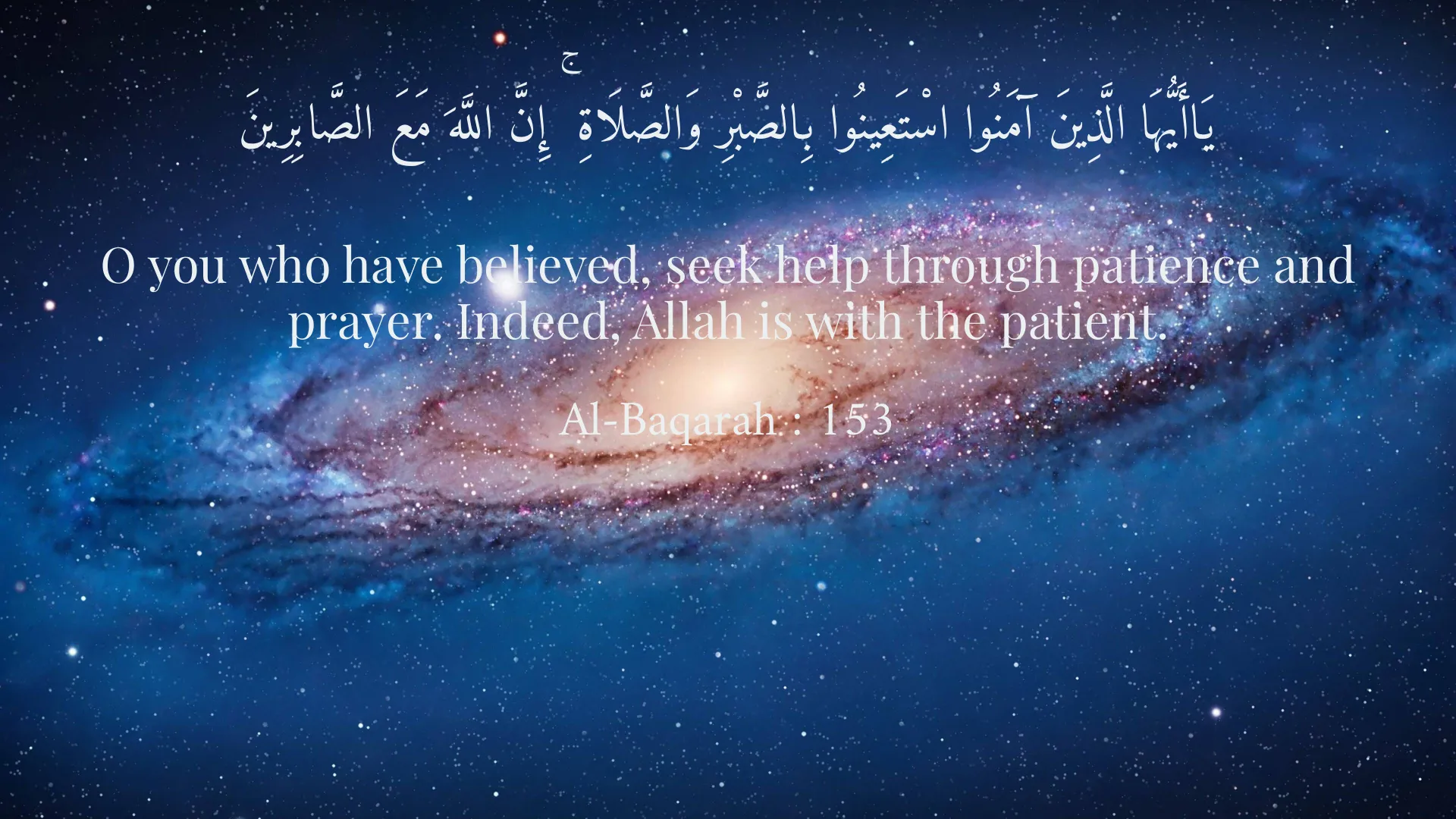Quranic Answer

Giving hope to others is a vital act that can significantly impact their lives. The act of providing hope is not just beneficial but often essential for many individuals navigating through life's myriad challenges. Hope can be seen as the light at the end of a dark tunnel, guiding individuals towards recovery, resilience, and ultimately, a more fulfilled existence. The importance of hope is highlighted in numerous religious texts, including the Quran, which sheds light on how believers can assist one another by embodying patience, perseverance, and support. According to Quranic verses, Allah commands the believers to assist one another in patience and perseverance, which is itself a sign of hope in divine mercy and grace. This is underscored in Surah Al-Baqarah, verse 153, which states: 'O you who have believed, seek help through patience and prayer. Indeed, Allah is with the patient.' This beautiful verse encapsulates deep wisdom; it encourages individuals to turn to God amid their struggles, reinforcing the transformative power of prayer and patience. By nurturing these qualities, we can convey a message to others who are suffering: they are not alone in their hardships, and divine assistance is always near. The belief that a higher power stands alongside them often provides individuals with the strength to carry on, reinforcing the importance of fostering hope. Furthermore, the Quran provides profound insights regarding trials and tribulations of life as stated in Surah Al-An'am, verse 32: 'And the worldly life is but amusement and diversion; but the home of the Hereafter is best for those who fear Allah. So will you not reason?' This verse serves as an important reminder that while the trials faced in this life may seem overwhelming and relentless, they are temporary. They are, in the grand scheme of eternity, merely a fleeting experience. Emphasizing that there are great rewards awaiting the faithful in the afterlife can encourage individuals to reframe their perceptions of struggle. Realizing that tough times can yield spiritual growth can inspire hope and resilience. In addition to the spiritual text, the practical application of hope is equally significant. Offering hope can be accomplished through our positive behavior and our interactions with those around us. We must prioritize kindness and support in our everyday encounters, reinforcing the belief that our comrades can conquer their obstacles. Simple acts of kindness can create ripples of positivity and inspire hope in others. For instance, offering words of encouragement to a friend in distress or lending a helping hand to someone navigating a challenging situation can significantly affect their mental well-being. It showcases to them that their difficulties are acknowledged and that they are supported. Moreover, fostering a community of hope requires conscious effort and commitment. Creating an environment where individuals feel safe to express their fears and doubts can be instrumental. When individuals are encouraged to share their stories of hardship, they often find solace in shared experiences and collective resilience. This shared dialogue within communities can cultivate a culture of hope. In addition to community support, personal responsibility is equally important in promoting hope. Individuals can take it upon themselves to serve as pillars of strength within their circles. Taking the initiative to check in on friends and offering reassurance during tough times creates a significant impact. Active listening and empathy help ground their experiences in validation, further enhancing the belief that they are loved and valued. Such acts make a profound difference in their ability to cope with life's difficulties. Moreover, practical measures like mentorship programs can also help in spreading hope. Mentoring allows individuals to share their experiences and triumphs, providing insight on navigating life's challenges. This transfer of knowledge reinforces hope and demonstrates that struggles can be overcome. By showing that personal stories of overcoming adversity exist, mentors instill the belief that the same is achievable for their mentees. Stories of survival and success, whether from religious texts, personal anecdotes, or historical accounts, serve as beacons of hope and motivation for those who may feel lost or defeated. In the end, giving hope to others doesn't have to be a monumental task; it can manifest through simple acts of love, care, and patience. A reassuring smile, a word of affirmation, or even a moment of shared silence can show someone that they matter and that their battles are recognized. Patience and prayer, as emphasized in the Quran, coupled with acts of kindness create an ecosystem of support that nurtures hope. In conclusion, the comprehensive message found in the Quran and the practical applications of these teachings remind us that hope is a dynamic and transformative force. We are encouraged to uphold each other in times of need, promote resilience through acts of kindness, and foster an environment where hope can thrive. By embodying these principles, we can create a world where individuals feel supported in their journeys, and where the light of hope continually illuminates their paths.
Related Verses
يَاأَيُّهَا الَّذِينَ آمَنُوا اسْتَعِينُوا بِالصَّبْرِ وَالصَّلَاةِ ۚ إِنَّ اللَّهَ مَعَ الصَّابِرِينَ
O you who have believed, seek help through patience and prayer. Indeed, Allah is with the patient.
Al-Baqarah : 153
وَمَا الْحَيَاةُ الدُّنْيَا إِلَّا مَتَاعُ الْغُرُورِ ۖ وَإِنَّ الدَّارَ الْآخِرَةَ لَهِيَ الْحَيَوَانُ ۚ لَوْ كَانُوا يَعْلَمُونَ
And the worldly life is but amusement and diversion; but the home of the Hereafter is best for those who fear Allah. So will you not reason?
Al-An'am : 32
Short Story
One day, Maryam was sitting in the park, watching others who were happy and smiling. She decided to give a word of kindness to anyone she could bring hope to. She first approached a child who was playing and said, 'You are amazing and you could be the best football player!' The child looked at her with enthusiasm and said with a big smile, 'Really?!' Maryam felt joy and continued, 'Yes, anyone can achieve anything they want in life.' She realized that with her words, she could instill hope and happiness in others.